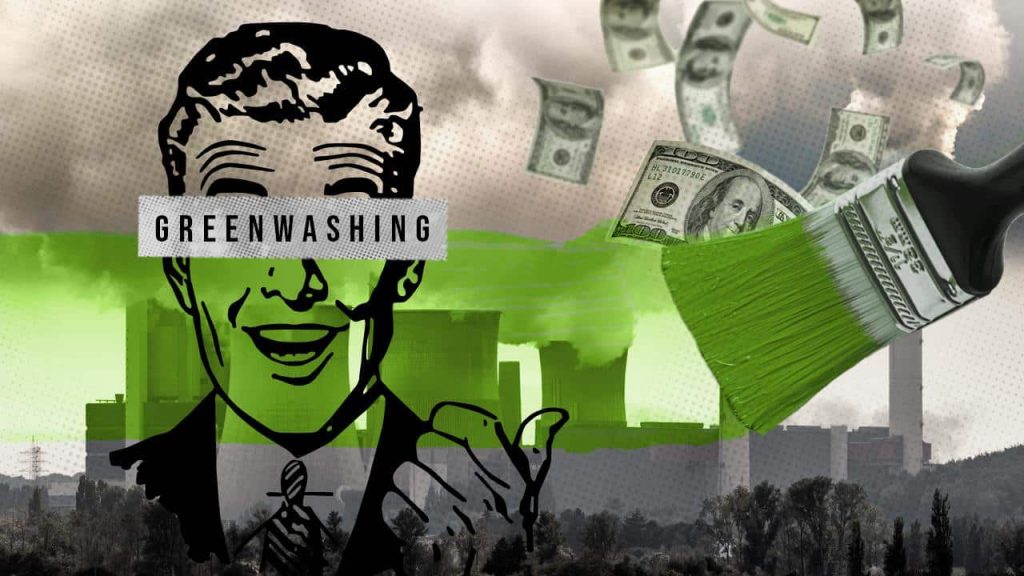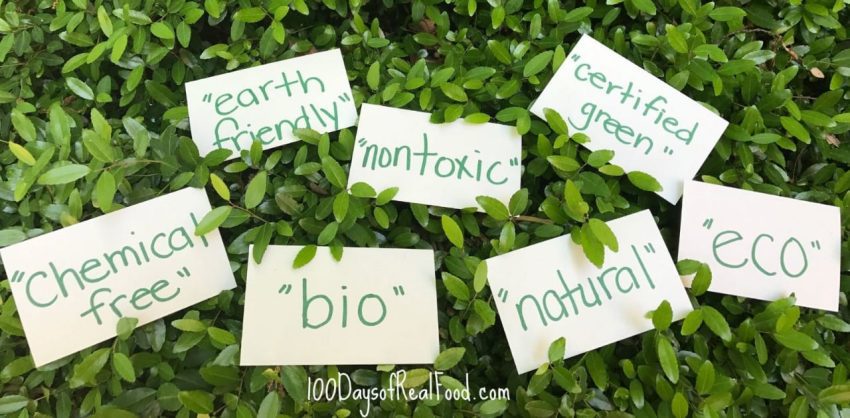EcoGoods Inc. was a consumer products company that wanted to capitalize on the growing demand for eco-friendly and sustainable products. The CEO decided to launch a major “green” marketing campaign to present EcoGoods as an environmentally responsible company, even though they had made very few substantive changes to their unsustainable manufacturing processes and sources.
The slick marketing worked. EcoGoods saw an influx of new customers and investors who believed the company’s claims of being “100% natural” and “committed to saving the planet.”
Little did they know that EcoGoods was using the same harmful ingredients and toxic production methods as always.
What is Greenwashing?
Greenwashing refers to the deceptive use of green marketing or misleading claims about a company’s environmental practices. It occurs when a company or organization spends more time and money claiming to be “green” through advertising and marketing than actually implementing business practices that minimize environmental impact.
The term originates from “whitewashing” which means covering up bad actions through propaganda or spin. Greenwashing amounts to “environmental whitewashing” as companies make sustainability claims that are exaggerated, misleading or untrue.

While many consumers want to support environmentally friendly businesses, greenwashing makes it hard to distinguish truly sustainable brands from those who just want to capitalize on green marketing buzzwords. As a result, companies that actually do implement green practices can struggle to stand out from bullshitters.
Examples of Greenwashing
Greenwashing is common for products touting vague labels like “eco-friendly”, “all natural” or “organic”. Here are some examples:
- Hotels claiming to be “eco-friendly” because they have recycling bins, when their buildings continue to have massive environmental footprints from construction materials to energy and water use.
- Paper companies labeling products “Recycled” or “Made with Recycled Content” even though they still mainly source from virgin forests rather than used paper.
- Cosmetic companies labeling products as “natural” when they contain chemicals harmful to the environment or contain synthetic ingredients.
- Car companies advertising “hybrid” or “low emission” vehicles but neglecting to mention their huge carbon footprints from production and materials sourcing.
- Plastic water bottle brands promoting sustainability initiatives while continuing to produce single-use plastics that pollute oceans and landfills.
- Commercial airlines offsetting only a small fraction of their total carbon emissions through tree planting programs, while overstating how “carbon neutral” they have become.
Problems with Greenwashing
Greenwashing causes several problems in the community. Here are several problems that greenwashing causes:
- It undermines trust in green claims and marketing overall. When consumers realize they’ve been duped, they become skeptical of all environmental labeling.
- It disadvantages truly sustainable brands that invest heavily in green practices but lack the marketing budgets of greenwashers. Consumers may not distinguish real leaders from pretenders.
- It slows real progress towards solving environmental crises. Greenwashing allows businesses to appear environmentally conscious without substantially changing destructive practices.
- It exploits consumer concern for the environment for financial gain. Companies engaging in greenwashing primarily want to boost sales and profit, not reduce their impacts.
- It wastes resources. Funds spent on misleading green ads and campaigns could be better used to invest in more sustainable production and operations.
Combating Greenwashing
Several approaches can help combat problematic green claims. Below are several ways governements and industry can combat greenwashing:
- Government regulations and standards for environmental labeling to ensure marketing matches up with meaningful action.
- Third party certifications like Energy Star, LEED and Fair Trade that set clear sustainability criteria for products and services.
- Media exposés and watchdog groups fact-checking company green claims. Public pressure can compel companies to improve practices or stop misleading marketing.
- Increased corporate transparency around sustainability metrics and key performance indicators related to areas like carbon emissions, waste generation and materials sourcing.
- Better education of consumers to identify vague green marketing buzzwords and demand proof of sustainability claims from businesses.
- Cultural shift within companies towards more proactive disclosure of impacts and a focus on genuine transformation, not just spin.
Greenwashing remains all too common yet problematic for promoting more sustainable business practices and consumption. While some level of green marketing can help raise consumer awareness, exaggerated or untrue environmental claims ultimately hurt credibility, progress and trust. With stronger regulations, transparency, education and accountability, we can push businesses towards making genuine sustainability gains rather than just rhetoric. Reducing greenwashing is an important step towards a greener and more honest economy.

Read more:
- Best Before Opens New Centurion Store, Challenging Pick n Pay and Checkers with Low Prices
- Local Shops Outpaced Supermarkets as Consumers Flocked to Spazas and Taverns
- Mirinda Welcomes Red Apple and Raspberry to the Family
- Kroger to close dozens of unprofitable stores in strategic restructuring
- Vendors defy ban on second-hand goods as government pushes formalization





